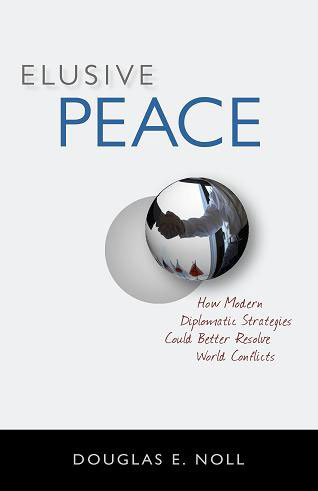Americans could lose a lot if the US exercises its planned veto in the Security Council vote on the Palestinian application for admission to the United Nations. The question that is not being discussed is whether the loss is worth it.
The first thing to know is that the issue is not about Palestinian statehood. The media essentially has it wrong when it describes the UN vote as one creating a Palestinian state. The UN does not have the power to create a state. The issue is whether the Palestinian Authority will be admitted as a member to the UN. There are non-states who are members of the UN, such as the Vatican, and there are states that are not members of the UN, such as Taiwan and Kosovo. Being a member of the UN is not the same as being a state. Thus, the US is really opposing a membershp application, not a referendum on statehood. Second, to gain admittance to the UN, the Palestinian Authority would have to accept the tenets of the UN Charter. Among other things, this would require a recognition of Israel’s right to exist and a rejection of violence. Since Hamas rejects Israel’s right to exist, the Palestinian Authority will be placed in a difficult dilemma. It can join the UN and accept Israel’s right to exist, or it can reject membership and continue to oppose Israel’s right to exist. The unintended consequences of the Palestinian Authority admission to the UN might actually work to the benefit of the US and Israel.The media doesn’t talk much about this important issue either. Third, a US veto against a symbolic membership application that does not have the force of law and may actually advance US and Israeli interests will be very, very costly. A veto will dispel any notion of the US’s impartiality as a mediator in the Middle East peace process. A veto will be seen as an implicit endorsement of continued settlement construction in the West Bank. A veto will be seen as implicit endorsement of the non-peace regime of Benjamin Netanyahu. A veto will be viewed as inconsistent with the professed American values of freedom, self-dtermination, and democracy. Thus, a veto may cause important moderate elements the Arab world to turn away from the US as a model of peace, democracy, and protector of human rights. A veto will be used by radical political Islamists to incite further violence against the US, particularly the US military. A veto will harm US efforts to find peaceful solutions in Iraq and Afghanistan. A veto, in short, will make foreign policy initiatives in the Islamic world much more difficult. The cost to ordinary Americans will be reflected in continued unpopular military expenditures and a possible decline in national security, at least overseas. The pro-Israel lobby and American Jews supporting Israel would say that all of this does not matter. What is important is the survival of Israel. However, they do not explain how the Palestinian membership in the UN threatens Israel’s survival. This is a classic example of reactive devaluation: If it’s good for the Palestinians, it must be bad for Israel. Israel’s supporters are automatically and emotionally rejecting anything that could concievably benefit the Palestinians. Since they see the conflict in purely distributive terms–one side’s gain must mean the other side’s loss–any Palestinian gain must cause harm to Israel. However, a reasoned examination of the effects and implications of admission to the UN fails to uncover a cost to Israel. How, exactly, is Israel injured by the Palestinian admission to the UN? The media isn’t asking this question either. Finally, President Obama has precious little negotiation leverage over Netanyahu. To remedy the lack of leverage, he should withdraw the US threat of a veto. The more strategic approach might be to say, “The US has not decided on its position on the application of the Palestinian Authority for UN membership. Whether the US votes in favor, opposes, or abstains will depend largely on the willingness demonsrated by the Israelis and the Palestinians to progress towards a durable peace. The US is committed to peace in the region and will support those who aspire for it through their concrete actions. It will not support those who merely talk peace, but are unwilling to compromise.” From this position, the US may leverage the parties to the peace table. Netanyahu has to know that the US may not oppose the Palestinian bid for membership in the UN. If he backs off of his hawkish, aggressive positions and compromises with the Palestinian Authority, great. If he remains opposed to compromise, including cessation of settlement construction, he bears the consequences in the Security Council vote. The same is true for the Palestinians. That kind of sophisticated negotiation strategy seems unlikely because the domestic political costs at the beginning of a presidential electiion cycle will be too high. However, the cost of not alienating the pro-Israel special interests will extract a higher cost for world peace. Ultimately, American taxpayers will have to foot the bill for that price. Douglas Noll, Lawyer Turned Peacemaker, is the author of Elusive Peace: How Modern Diplomatic Strategies Could Better Resolve World Conflicts (Prometheus Books 2011).Buy Elusive Peace
-
Recent Posts
Recent Comments
Archives
Categories
Meta
- Your Content



